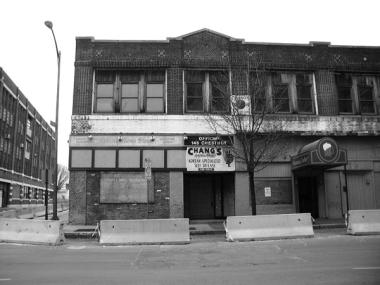The Springfield mayor’s office announced last week, regarding the new trash fee, “The End is Nigh.” Actually, the release stated, “End of trash service nears for non-responders.” If you haven’t already paid the trash fee, whether quarterly or annually, you’re now considered a non-believer—rather, a non-responder.
DPW officials planned to announce early this week the rate of trash fee participation to date along with an update on the city’s process of implementing it. “Springfield property owners are not mandated to participate in the city’s trash service,” the announcement said. “Those who choose not to participate will be responsible for the proper disposal of their own trash.”
The city also publicized the awarding of a Main Street reconstruction contract to Ludlow Construction, which submitted the lowest bid of three at just over $2 million. Work is anticipated to begin by the end of the month, with “substantial completion” near the end of the year. In a statement, Brian Connors, Deputy Director of Economic Development, said, “For downtown to continue to rebound, both the private and public sectors need to invest, and this project is a great example of a public project that will have a great impact in the look and feel of Main Street.”
The project area runs along Main Street from the railroad crossing near Lyman Street southeastward, just past State Street to Bliss Street—roughly from the Hippodrome to just beyond the MassMutual Center. Plans include a complete repaving of the street, select sidewalk reconstruction, new crosswalks, pedestrian countdown clocks, traffic signals, trees and new light fixtures—the latter resulting from work done by LAM Partners to examine lighting levels and possible improvements. Lighting on Main Street is now expected to increase two-fold after the work is complete. New parking patterns may also emerge on Main Street after the work is done: the city plans a trial period of a limited number of on-street spots.
Lastly the city planned to begin demolition early this week of 141-147 Chestnut St. at Apremont Triangle, a notoriously problematic location in the past as a bar. It stood vacant and abandoned for more than five years, according to a press release. Taken by the city for non-payment of taxes over a year ago, the building was condemned last December. Accu-Tech of Ludlow won the demolition project at $121,000. The work is funded by the city’s demolition bond.
The mayor’s release reminds us, “[T]he demolition… contributes to the neighborhood development taking place in [Apremont Triangle]. Other efforts include working with the Parking Authority and the developers of the Birnie Building LLC for an urban grocer for the area.”
As a recent planning staff analysis tells us, in relation to a South End used-car lot, “[T]he overall look and feel of the Main Street experience continues to be compromised by the continuing loss of the architectural street edge and expansion of large parking lots and automotive-related uses. Successful urban corridors, typically main streets, are designed to engage pedestrians and encourage retail activities. These designs include buildings at the street edge with first floor retail, street trees to provide shade, and other pedestrian amenities.”
Holes in the street edge increase distance between destinations for pedestrians going about their business. “[T]he desirability of the business district as a whole diminishes,” the analysis says, when holes exist like parking lots, vacant spaces left from demolished buildings, and condemned buildings merely slated for demolition. Removal of a condemned building can be one step toward filling a hole.



